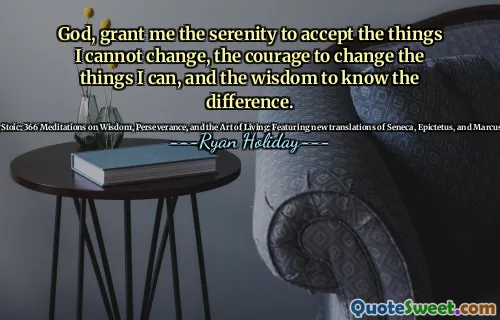The philosophy asserts that virtue {meaning, chiefly, the four cardinal virtues of self-control, courage , justice , and wisdom} is happiness, and it is our perceptions of things- rather than the things themselves- that cause most of our trouble. Stoicism teaches that we can't control or rely on anything outside what Epictetus called our "reasoned choice"- our ability to use our reason to choose how we categorize, respond, and reorient ourselves to external events.
The philosophy of Stoicism posits that true happiness is found in virtue, specifically the four cardinal virtues: self-control, courage, justice, and wisdom. It emphasizes that our perceptions, rather than external events themselves, often lead to our difficulties. By recognizing this, we realize that our perspective shapes our experiences, allowing us to find tranquility amidst challenges.
Moreover, Stoicism instructs us to focus on our "reasoned choice," a concept introduced by Epictetus. This principle highlights our ability to choose how we interpret and respond to events beyond our control. By honing our reasoning skills, we can better navigate life and cultivate inner peace and resilience in the face of adversity.







